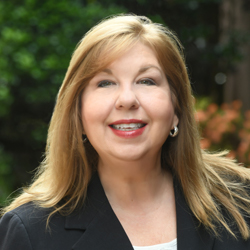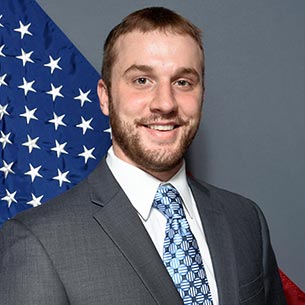Wills, Trusts and Probate Attorney in Charlottesville, Virginia
Have you ever watched a grieving grandparent or parent stare at a pile of bills and letters on the kitchen table after a funeral? We can’t take all of the stress away from our loved ones, but a well-thought-out estate plan will surely be a comfort when the time comes. We can help you with this. Call us.
Mary Ann Barnes – Estate Attorney
Contact us today for a Free Phone Consultation. It’s the first step toward protecting your family.
What is an estate plan?
An estate plan is a tool for managing your assets in life and at death. An estate plan can provide you with peace of mind, and be the best gift you can give to your family. A well–crafted estate plan can not only ensure that your affairs are properly handled in the event of your incapacity, but also that your property passes to the people you choose in the most efficient way possible. In addition, a well-crafted estate plan can minimize family taxes, tension and disputes after your death.
Who needs an estate plan?
You do. Whether you are old or young, whether your estate is large or small, and particularly if you have had a life-changing event, such as the birth of a child, death of a spouse or divorce.
We assist clients with the following:
• Wills: Simple and Complex
• Trusts: Revocable (Living), Irrevocable, Special Needs, Life Insurance and Charitable
• Durable Powers-of-Attorney: General and Special
• Living Wills: Authorization to Make Anatomical Gifts, Health Care Powers of Attorney
• Estate Administration: Assistance with Probate, including Executor Qualification and the Filing of Inventory and Accounting
• Estate Litigation: Appointment of Guardians/Conservators for Incapacitated Adults and Partition of Real Property
Definitions:
Will: A public document that provides for the payment of your debts and the distribution of your probate assets at death.
Trust: A private document that provides for the management of designated assets by a trustee outside of probate.
Guardian for Minors: Person(s) appointed by you to care for your children at your death.
Power of Attorney: A document that names an agent to step into the shoes of an individual to manage his or her property and financial affairs, and that terminates at the time of the individual’s death.
Advance Medical Directive: An advance medical directive typically incorporates four documents: a “living will”, a power of attorney for health care, an authorization to make anatomical gifts and an information release.
Executor: The person or entity named in your will that accepts appointment by the court to handle your estate after your death.
Guardian or Conservator: A person appointed by the court to handle the personal affairs and finances of an incapacitated adult.
15 frequently asked questions about VA wills, trusts and probate cases:
1. What is a will?
A will is a signed writing in which a person (often referred as the “testator”) directs what is to be done with his or her property after death. Each state has its own very specific laws as to what is necessary for a will to be valid in that state.
2. Who may make a will?
Any mentally competent person who is a least eighteen years old may make a will. However, later proof of any fraud, duress, or undue influence by another person on the testator may cause the will to be invalid.
3. Who should have a will and why?
Every mentally competent adult should have a will. Here are a few of the reasons:
- You can direct how you want your property divided at your death.
- You can name the person you want to handle your estate (called the “executor” or “personal representative”).
- You can reduce the expenses of administering your estate.
- You can save taxes.
- You can nominate a guardian for your minor children.
- You may provide for a trust for the support and education of your children without the necessity of costly court proceedings.
4. Must a will be witnessed? Must it be notarized?
In Virginia, the signing of a will must generally be witnessed by two competent persons, who also must sign the will in front of the testator. (An exception to the witness requirement is made if the testator writes out the entire will in his or her own handwriting and signs and dates it.) Although the law does not require a will to be notarized, it is highly recommended practice followed by most lawyers. If the testator’s and witnesses’ signatures have been notarized, the will is presumed to be properly executed and is accepted by the court without testimony from the witnesses.
5. How long is a will valid?
Your will is valid until you revoke it, generally either by physical destruction (tearing or burning it up, for example) or by signing a superseding will or written revocation. However, if you get divorced after signing a will, the law may consider the will partially revoked with respect to your ex-spouse. Also, if you are married, your spouse may have rights in your estate regardless of what is provided in your will.
6. May a will be changed?
Your will does not take effect until you die; therefore, it can be changed at any time during your life as long as you are mentally competent. Traditionally, wills were changed by an amending instrument called a “codicil,” but with the development of modern technology, it is usually better and just as easy to sign an entirely new will when you wish to make a change.
7. What happens if I don’t have a will?
If you don’t have a will, a state statute directs who will receive your property, regardless of your wishes. In Virginia, if you are married, your estate generally passes entirely to your surviving spouse; however, if you have surviving children or their descendants who are not also the children or their descendants of your surviving spouse, your children and their descendants divide two-thirds of your estate, and your spouse takes the other one-third.
8. Is joint ownership a substitute for a will?
In most cases, joint ownership is not an acceptable substitute for a will. Contrary to popular belief, joint ownership of assets between husband and wife may result in unnecessary estate taxes at the death of the survivor. Joint ownership between parent and child may foster disputes among family members and cause unexpected and unnecessary gift taxes.
9. Is a living trust a substitute for a will?
Many people read about the advantages of Trusts over Wills and call to see if it is the route to go for their Estate Planning needs. There are many reasons to consider a trust in addition to a will. Privacy, Estate Taxes and a Disabled child are a few of the reasons. In regards to privacy, if a person is concerned that a family member may object to the contents of their will, I suggest preparing a trust. A trust is a private document that does not get probated in the clerk’s office therefore it remains private between you and your trustee.
The only document that gets probated is the pour over will. The pour over will simply states that all assets go to the trust. The only person that needs to see the trust is the trustee. The trust can be shared with whoever the grantor (maker of the trust) would like to share it with but no disclosure is mandatory. This process gives people the peace of mind that their wishes will be carried out upon their death.
A funded revocable (“living”) trust can be valuable and important part of the estate plan for many people, but it does not eliminate the need for a will. If you have a living trust, you will still need a will to dispose of the assets that have not or cannot be placed in a trust. As useful as they are, living trusts are not appropriate for everyone. Only your lawyer can tell you if you should consider one, and only your lawyer should prepare it.
10. What is a durable power of attorney?
A power of attorney is a document you sign, while competent, that authorizes another person to act for you. That person is your agent and is allowed to act on your behalf. Your agent can sign any financial document that you personally have the power to sign.
11. What is a Living Will?
In Virginia, a living will generally refers to a clause in our Advanced Medical Directive that states “do not keep me alive in a vegetative state”. At Tucker Griffin Barnes, we start with the Medical Directive provided in the Virginia Code. A person can alter this clause depending on their personal wishes.
For example, a person with a relative in the medical profession may want that person involved in any decision about their ability or inability to make decisions for themselves. They may want to add the name of their primary physician, if they have a long-term relationship with that physician. Some persons like to add holistic remedy information. Do not hesitate to personalize your living will so that your wishes are known and followed.
12. What happens to my estate in Virginia if I die without a will and have minor children?
A guardian to care for the children will be appointed by the court. In respect to their inheritance, if a parent dies without a will, then the minor children would be entitled to receive their entire inheritance at age 18.
13. What is probate?
Probate is a legal process that takes place after someone dies. It includes:
- Identifying and inventorying the deceased person’s property
- Having the property appraised
- Paying debts and taxes
- Providing the court with an annual accounting
- Distributing the estate as the will (or state law, if there is no will) directs
Tucker Griffin Barnes also offers estate administrative services to handle the probate process.
14. Who should draft my will?
A person who drafts a will must be familiar with the law in order to avoid the many pitfalls and to comply with the formalities necessary to assure the will’s validity. Only a practicing lawyer is professionally qualified to give you advice regarding your will, and only your lawyer should prepare it.
15. What is your fee structure?
Estate planning services are handled on a flat-fee basis. Estate administration services are handled on an hourly basis. We offer an initial FREE telephone consultation. We accept all major credit cards to assist with payment.
Your Next Step:
Contact us today – We’re ready to help.
We have three offices conveniently located in Charlottesville, Palmyra (Across from Food Lion), and Harrisonburg, Virginia.

























